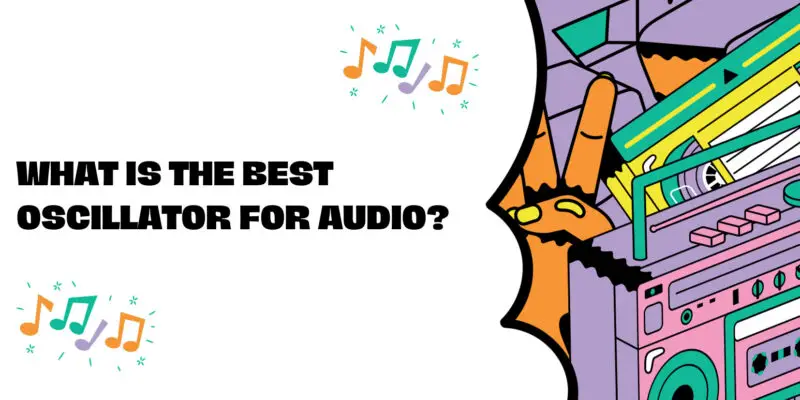In the world of audio synthesis and electronic music production, the choice of oscillator is a crucial decision that profoundly influences the sonic character of your music. Oscillators are the foundational sound sources in synthesizers, and selecting the right type can significantly impact the timbre, versatility, and expressiveness of your compositions. In this article, we will explore various types of oscillators and considerations for choosing the best one for your audio needs.
Types of Oscillators for Audio:
- Analog Oscillators:
- Characteristics: Analog oscillators are renowned for their warm and organic sound quality. They produce continuous waveforms, including sine, square, sawtooth, and triangle waves.
- Applications: These oscillators are ideal for creating classic analog synth tones, including fat basses, lush pads, and expressive leads. They are favored in genres like electronic, ambient, and classic rock.
- Digital Oscillators:
- Characteristics: Digital oscillators use digital signal processing to generate waveforms. They offer precise control and can emulate a wide range of sounds, including acoustic instruments and futuristic textures.
- Applications: Digital oscillators are versatile and suitable for diverse musical genres. They are favored in genres like electronic dance music (EDM), pop, and experimental music.
- Wavetable Oscillators:
- Characteristics: Wavetable oscillators produce waveforms by cycling through a table of single-cycle waveforms. This approach allows for morphing between complex wave shapes.
- Applications: Wavetable oscillators are known for evolving and evolving timbres, making them ideal for creating evolving pads, textures, and soundscapes.
- Frequency Modulation (FM) Oscillators:
- Characteristics: FM oscillators use frequency modulation to create complex and harmonically rich sounds. They are known for their ability to produce metallic and bell-like tones.
- Applications: FM oscillators are often used in genres like electronic and experimental music, where unique and evolving textures are desired.
Choosing the Best Oscillator for Your Needs:
- Sound Aesthetics: Consider the sonic qualities you want to achieve in your music. If you desire warm and organic tones, analog oscillators may be your best bet. If you need versatility and precision, digital or wavetable oscillators could be more suitable.
- Musical Genre: The genre of music you produce can influence your oscillator choice. Certain oscillators are associated with specific genres, so it’s important to align your selection with your musical style.
- Sound Design Flexibility: If you enjoy sound design and experimental music, consider oscillators that offer extensive modulation options, such as FM oscillators or those with wavetable capabilities.
- Budget and Equipment: Your budget and the equipment you already have can play a significant role in your oscillator choice. High-quality analog oscillators, for example, can be expensive, while digital options may offer affordability.
- Integration with Other Gear: Ensure that your chosen oscillator integrates seamlessly with your synthesizer or music production setup. Compatibility and connectivity options are essential factors to consider.
Conclusion: Tailoring Your Sound
The “best” oscillator for audio ultimately depends on your musical goals, preferences, and the sonic palette you wish to explore. Each type of oscillator has its own unique strengths and applications, so it’s important to choose one that aligns with your creative vision. Whether you seek the warmth of analog tones, the precision of digital soundscapes, or the experimental possibilities of FM synthesis, your choice of oscillator will be a crucial step in shaping your signature sound in the world of audio production and synthesis.


